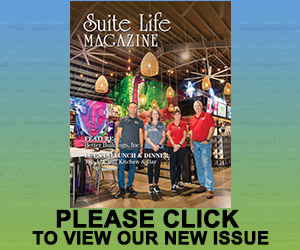

Common Copyright Pitfalls in the Real Estate and Construction Industries
ROUND TABLE October 30, 2020 admin

In today’s internet-driven economy, real estate and construction professionals recognize the importance of using digital content, including photographs and videos, to reach consumers. However, this often creates unique intellectual property issues, including potential copyright infringement questions, when pictures or videos are sourced inappropriately.
Copyright law protects the creative expression of an idea, be it words on a page, notes in a song, brushstrokes on a canvas, or the various compositional elements in a photograph or video; i.e., lighting, shadow, camera angle, etc. Copyright law can also protect creative expressions embodied in what are, perhaps, less obvious types of visual works – such as buildings, architectural plans, and architectural drawings.
Many traditional copyrights are intuitive. However, copyright laws largely predate the digital world, such as cases dating from the late 1800s which protected photographs. The application of these 19th-century legal frameworks to 21st-century problems can lead to many counterintuitive results. Real estate and construction industry professionals must be aware of the consequences of such results. One counterintuitive pitfall involves employees or independent contractors who have not signed appropriate copyright-related paperwork; especially in the case of independent contractors, the lack of an agreement can be disastrous.
An independent contractor generally retains ownership over copyrights for any work he or she creates unless there is some written agreement, known as a work for hire agreement. Thus, when a business hires an outside graphic artist or marketing firm, there can be contested ownership issues unless proactive steps are enacted with a written work for hire agreement. Additionally, when a company hires an external photographer to take pictures, the photographer owns the photographs’ rights unless there is a written work for hire agreement. In worst-case scenarios, lawsuits concerning ownership or having to defend against a website/social media takedown can ensue.
Another counterintuitive outcome concerns the use of videos or photographs taken by others depicting businesses’ products or property. Businesses do not have an unfettered right to use third-party media, even where such media features a company’s products, designs, or property. For instance, a builder might want to use a third-party photograph of a building that the builder constructed. Similarly, a manufacturer may see a product review posted on social media by a satisfied customer. The natural inclination in today’s digital world is to copy and paste such photographs and videos, but that can also lead to copyright issues.
Often, photographers are happy to give permission, free of charge, in exchange for merely including attribution information such as a website link. Other times, media is licensed in place of paying a copyright royalty, either directly with photographers (with the aid of a competent attorney) or through various stock photo organizations, or Getty Images’ istockphoto.com.
Establishing reasonable precautions, such as work for hire agreements, with independent contractors and securing appropriate permissions before using third-party content, is the proverbial ounce of prevention, which is far less expensive than a pound of cure after alleged copyright infringement.
Luca Hickman is a registered U.S. patent attorney and a Canadian foreign patent agent and trademark agent at Henderson, Franklin, Starnes & Holt, P.A., in Fort Myers. After graduating with degrees in electrical engineering from universities in both the U.S. and Germany, he earned his Juris Doctorate from the Ave Maria School of Law, graduating first in his class. Contact him at Luca.Hickman@henlaw.com or by phone at 239-344-1307. For more information, please visit www.henlaw.com.








